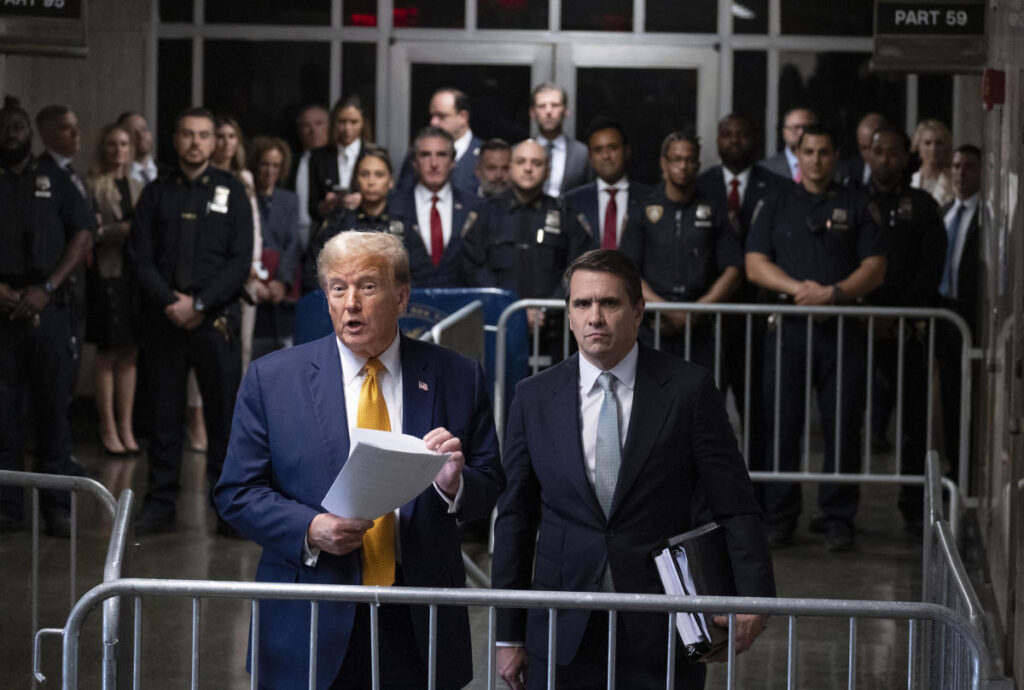New York prosecutors are preparing to contest efforts by Donald Trump’s legal team to have his hush money conviction dismissed before he assumes office again in January. Trump’s attorneys have urged Judge Juan M. Merchan to expedite the process of dismissing the case, arguing that its continuation would hinder Trump’s ability to govern effectively as he prepares for his return to the White House. They contend that the voters’ decision to re-elect Trump should take precedence over the ongoing legal proceedings initiated by the Manhattan district attorney’s office. Trump’s lawyers, Todd Blanche and Emil Bove, have been vocal in their stance that the case is politically motivated and flawed, seeking a ruling on their dismissal request by December 20.
The case against Trump stems from his conviction in May for falsifying business records in relation to payments made to silence a story regarding his extramarital affair during the 2016 election campaign. Trump has consistently denied the charges, labeling them as part of a broader political witch hunt. The Manhattan district attorney’s office has indicated its intention to oppose any efforts to dismiss the case based on Trump’s impending presidency. However, they have shown a willingness to consider delaying his sentencing to allow for the complexities associated with a sitting president, a move that acknowledges the unique constitutional considerations at play.
District Attorney Alvin Bragg articulated these competing interests during a speech, describing the intricate balance between the sanctity of the jury verdict and the responsibilities of the presidency. He emphasized that while the case’s outcome reflects the jury’s decision, the potential complications arising from Trump’s role as president must also be factored into the proceedings. Bragg noted that should the court impose a timeline for future filings, it is possible that prosecutors would not oppose a temporary suspension of the case pending Trump’s term.
The ramifications of this case are substantial, as a dismissal would clear Trump of a conviction that marks a significant moment in U.S. history: the first indictment of a sitting or former president. In stark contrast, if the conviction is upheld and the case progresses to sentencing, Trump could face penalties ranging from fines and probation to up to four years in prison. Such outcomes could profoundly affect his political career and ambitions.
As the legal proceedings remain in limbo, Trump’s scheduled sentencing, originally set for November 26, has been postponed, further complicating the timeline as Trump’s attorneys seek to resolve the matter before he officially takes office. The uncertainty surrounding the case introduces additional challenges for both Trump’s legal team and prosecutors as they prepare for the next steps in this unprecedented legal battle.
Overall, the case epitomizes the intersection of law and politics, with Trump’s lawyers arguing for dismissal based on voter mandates, while prosecutors defend the integrity of the judicial process in light of constitutional intricacies. The outcome will have enduring implications not just for Trump, but for the broader political landscape as it raises questions about accountability and governance in light of legal scrutiny.

